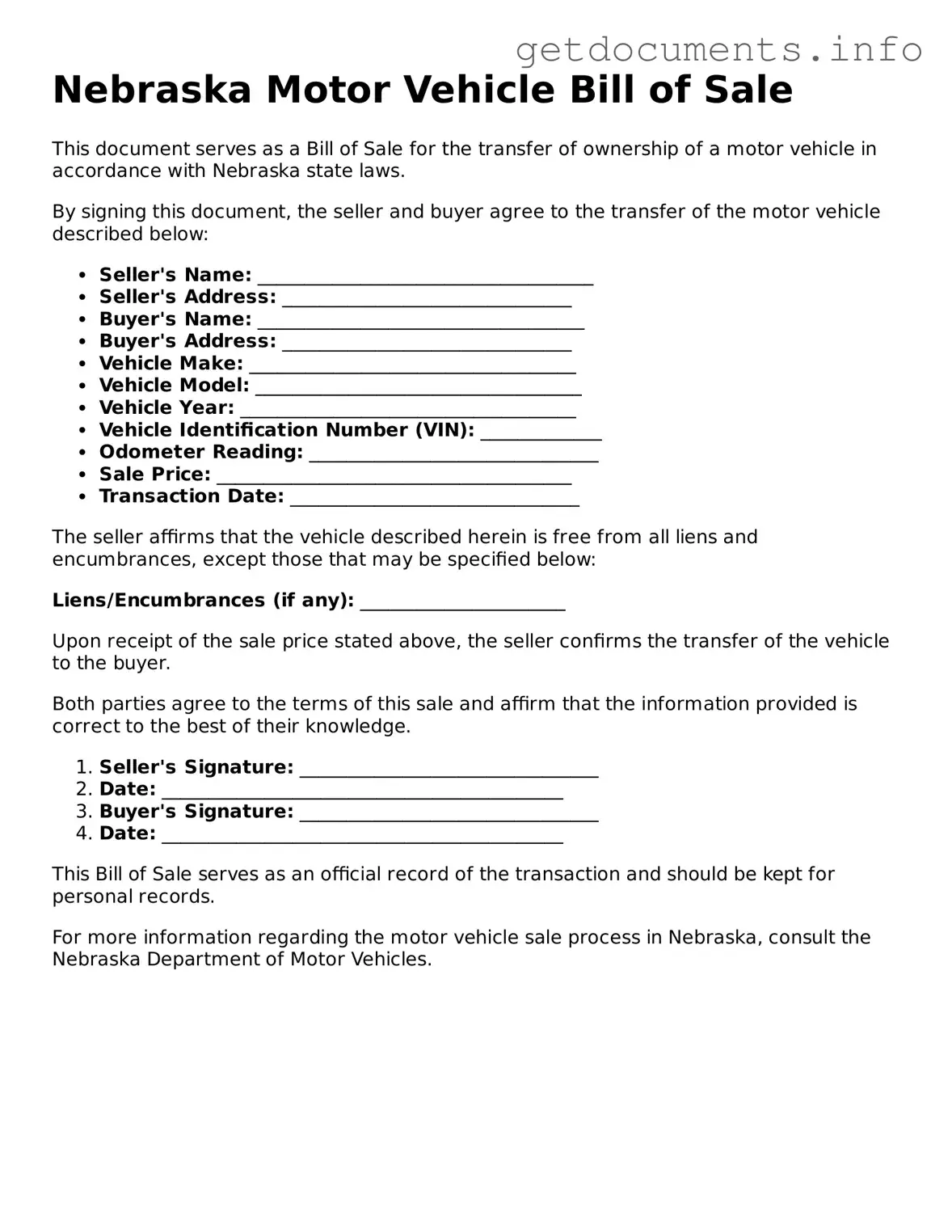Free Motor Vehicle Bill of Sale Template for Nebraska
The Nebraska Motor Vehicle Bill of Sale form serves as a crucial document that records the transfer of ownership for a motor vehicle in Nebraska. This form protects both the buyer and the seller by providing essential details about the transaction, including the vehicle's identification and the sale price. Understanding this form is key to ensuring a smooth transfer of ownership, so be sure to fill it out correctly by clicking the button below.
Access Motor Vehicle Bill of Sale Editor

Free Motor Vehicle Bill of Sale Template for Nebraska
Access Motor Vehicle Bill of Sale Editor
Got places to be? Complete the form fast
Fill out Motor Vehicle Bill of Sale online and avoid printing or scanning.
Access Motor Vehicle Bill of Sale Editor
or
⇩ PDF File
